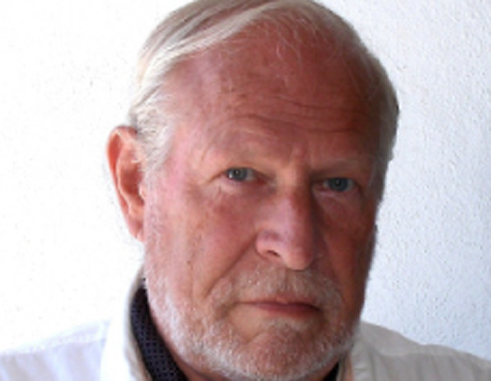
AS time and age advance, and with it one’s private and professional life progresses, one might come to the conclusion that most things we do in life, in business or even in politics, are just a bunch of nonsense. What is worse is that we keep doing it for no good reason at all, and are continuing to create more nonsense.
Some will put the blame on the boss or the government, some on the weather, others on their childhood, their mother-in-law or a recession. Great arguments that underline some of the nonsense even more. Climate change and resilience are trendy right now. It is almost like wanting to blame Nature for what Nature is and how it functions.
I’ve got some news for you. Extremely old news. It may take at least 10 digits to put a number on it. There is scientific evidence that forms of life on Earth appeared about 3.5 billion years ago. One year more or less doesn’t make a difference. There are people who may believe that it is what it took to create true human perfection.
Just imagine that it took an evolution that long to inspire some members of the human species to decide on putting together committees to figure out climate resilience. That’s a main topic in the headlines nowadays. Just as a side remark: did you know that French soft cheese takes about 4 weeks to ripen? Anyway, to describe the mission of such committees in some straightforward wording: find out what we recently messed up and how we can quickly fix it again.
The answer is so darn simple that it is almost insane: any material or process that was not created or influenced by man, and still exists, has proven to be resilient, in some cases over millions of years. The next question may be what would have survived or flourished if it wasn’t affected by human action or influence? There you will find some valid answers of what to keep, copy and protect, and what to avoid.
Some prefer looking for an easier solution, like we need more insurance and more financial assistance or handouts to survive when catastrophes happen. The correct answer is again so senselessly simple.
One is provided with two features for the use: brains and hands. As for the hands, we all know that some hands are bigger than others, and that some are used to do work, and some are used to be held up and receive. As for the brain sizes and functions, let’s not even get started discussing it. The answers to problems are usually quite simple and straightforward. But in order for them to be recognized and accepted, human brains and behaviour have an annoying delaying effect.
In 1997, I was asked by the Intergovernmental Oceanographic Commission of UNESCO to promote “1998, The International Year of The Oceans of the UN”. The mission was to create awareness for the world’s oceans. At that time, climate change was already being discussed. Scientists had recognized all the indications. They had computer models of the effects of rising sea levels. Why wasn’t something done about it already at that time?
For one, scientists typically have to prove things first and beyond any doubt; reasonable doubt is not even good enough. One cannot prove something when it didn’t actually happen. That is like wisdom from the law and order professions. Politicians will not take action unless scientists can prove something. They fear for their credibility and to be fried to a crisp if they cannot justify their decision without proper evidence.
Now, after those 20 years, one can at least say that tremendous progress is made, and climate change is about to be proven. The time has now come to think about action for becoming climate resilient. And, of course, on a smaller scale, like here in the Caribbean, a committee may be assembled of persons who must start thinking first, about what they actually need to be thinking about. Keep your fingers crossed for #1 seeing a plan of action and #2 enjoying the experience of the implementation.
If I would ask Mother Nature for her opinion about all this, she might respond with: “You people think you are ‘Living the life of Riley’ and you believe you are ‘Hot Stuff’. In my eyes, you are really only lallygagging and dilldallying along through your limited time of life. From my overall perspective, you are as unimportant as a miniature ship in a bottle. Mama Nature will adapt and survive. I always did. And you? So, listen to Mama Nature and learn from Mama Nature and don’t try to have things your way.” Ding-dong!
“Mama Nature,” I would ask with a sigh, “why such harsh words?” To which she may respond with the determination of a moving bulldozer: “Well, that is what it often takes to make you people halt for a moment and to forget your private interests, your shortcuts and your personal convenience and comfort before you get going.”



![Simón Bolívar - Liberator of the Americas [Photo credit: Venezuelan Embassy]](https://thevoiceslu.com/wp-content/uploads/2025/12/Simon-Bolivar-feat-2-380x250.jpg)






